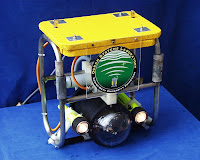 |
| The Hobbit An Unexpected Journey |
It's DRM but not as we know it
When
The Hobbit An Unexpected Journey is released in NZ on May 1st (why did we have to wait longer yet again?) it will come with a new service called
UltraViolet. I say new but what I should say is new to New Zealand. The rest of the world, or at least the parts that big business cares about, has had UltraViolet for quite some time.
So what is it and is it any good? In short it's
digital rights management (DRM) all over again and from what
overseas consumers are saying it's about as popular as all other attempts to copy protect audio and video content.
The players
Most of the big studios and media distributors are signed up to UltraViolet through a consortium called the Digital Entertainment Content Ecosystem (
DECE).
Sony,
NBCUniversal,
Fox,
Paramount,
Warner,
Dreamworks and
Lionsgate are all in there.
Notable DECE absentees are a couple of companies who really don't play well with anyone else.
Disney spoiled the party by going with their own proprietary system called
Keychest and
Apple are sticking with their
iCloud service. Oh well, par for the course.
What is it?
UltraViolet is a well funded and industry supported technology that aims to provide consumers with a license to view copyrighted movies on a variety of devices. It will work on your phone on your computer, your tablet, as long as you download and install all the correct applications and register for all the right accounts. It should work with desktop TV boxes, DVD and Blu-Ray players, too. If it doesn't work for you, well clearly you've done something wrong. I hate it already.

This is not a technology for me - I loathe it just from writing that last paragraph. Give me a physical disc and I'll be happy. Why? Well, the disc is mine (even if the content is not) and unless I lose it or sit on it it should last for as long as I could reasonably expect it to last. If I want to show it somewhere other than at home I can put it in my bag and take it with me - marvellous, and not very complicated to use.
We've seen it before and we'll see it again
I've had a chuckle looking through some of the
reader feedback at Amazon, I've checked out a few forums and I'm pretty certain that I'm not going to investigate this technology any further. I detest DRM because it doesn't work smoothly, it's much too complicated for the average consumer to comprehend and life is too short to get upset about why a movie won't play, or stream or why it's started jumping and staggering to the point where it's unwatchable. You can usually rest assured that if the movie industry thinks it's a good idea then the consumer is going to think the opposite.
In a data-capped environment like New Zealand bear in mind that that this technology is another way to rack up some high data traffic if you opt to stream UltraViolet movies from the web.
My choice
I will be buying the Hobbit on Blu-Ray. Why? Well it's a great film that will look great in
1080P Full HD, the
discs will be packed full of the kind of extras that
Peter Jackson is famous for and I've already reserved a space for it on my shelf, alongside the many other great movies that I feel compelled to own.
 UltraViolet links
UltraViolet links
Expanding the Hobbit experience (Stuff)
What you need to know about UltraViolet (TechRadar)
Reviewers hate digital locker (Gigaom)
Why UltraViolet is frustrating (IGN)
UltraViolet can go to hell (Blog comment)
UltraViolet home page
An FAQ about Ultraviolet
Ultraviolet titles at WowHD








































